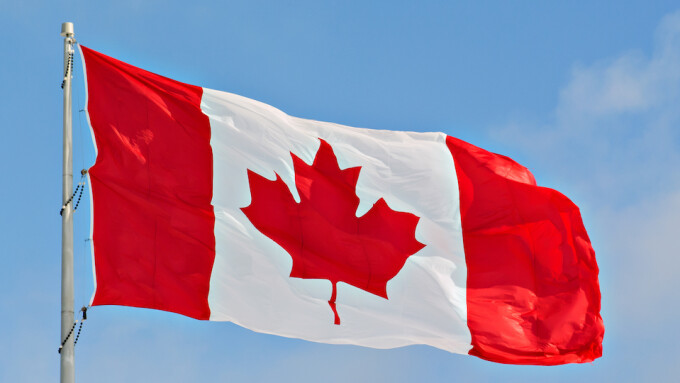OTTAWA — The Canadian government released its report on a controversial "online harms" bill today, highlighting concerns raised by stakeholders and sending it back to the drawing board.
According to CBC News, Canada’s Heritage Department, which would have been in charge of implementing Bill C-10, was compelled to acknowledge serious issues since “multiple civil society groups have expressed reservations with the federal government's proposed online harm legislation, which would force tech giants to take down flagged content within 24 hours.”
That requirement and other provisions of the bill were initially justified to the Canadian public during a heated period when a number of legislators from all five major parties targeted Montreal-based MindGeek in an atmosphere of “porn panic.” The proposal itself was linked to a series of parliamentary hearings in early 2021 targeting MindGeek’s tube site Pornhub.
New Report Follows Broad Consultation
As XBIZ reported last August, the Canadian government invited “stakeholders and Canadians” to submit comments regarding the bill's proposed updates to Canada's Broadcasting Act, and today's report is the result of that broad consultation.
The government’s call for comment stated that, although “social media platforms and other online communications services play a vital and important role in Canada’s society and economy,” they can also “be abused and used to incite hate, promote violence and extremism or for other illegal activity.”
“The Government of Canada is committed to taking meaningful action to combat hate speech and other kinds of harmful content online, including child sexual exploitation content, terrorist content, content that incites violence, and the non-consensual sharing of intimate images,” it continued.
Groups like NCOSE and Exodus Cry, and anti-porn activists like Laila Mickelwait, who was invited earlier last year to testify before the Canadian Parliament, have long argued that since neither age nor consent can be verified by merely watching a video or image, all sexual content online should be subject to takedowns. Longstanding First Amendment and free-speech arguments, they allege, are not applicable because of vague anti-“human trafficking” carveouts, including controversial U.S. law FOSTA-SESTA, which they hoped Canada would emulate.
But today’s report by the Heritage Department explicitly noted that “marginalized and racialized groups are particularly likely to be affected by the requirement to force tech companies, such as Facebook and Twitter, to quickly remove content that is flagged as offensive,” the CBC explained.
“Following consultations with various community groups last summer, the report said respondents believed the 24-hour requirement was flawed because it would give platforms an incentive to be overly vigilant and remove more content than necessary to avoid breaking the law,” the CBC report continued.
Proposal Included 'Systematically Flawed' Censorship Provision
The Canadian government now admits that “a significant majority of respondents asserted that the 24-hour requirement was systematically flawed. It would incentivize platforms to be over-vigilant and over-remove content, simply to avoid non-compliance.”
Google submitted a response to the consultation, expressing concern “about the government potentially limiting freedom of expression.”
Similar points were made last year by sex workers and advocates during the parliamentary hearings targeting Pornhub and MindGeek. The hearings' organizers had initially neglected to include sex worker voices in the debate and only invited them after mounting social media pressure.
The Heritage Department told the CBC that “it intends to engage with experts over the next few weeks now that the report is out,” but offered “no timeline for the introduction of legislation” beyond a commitment “to move as quickly as possible.”







